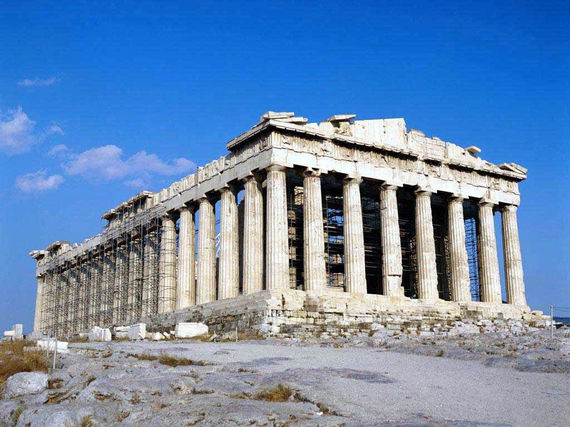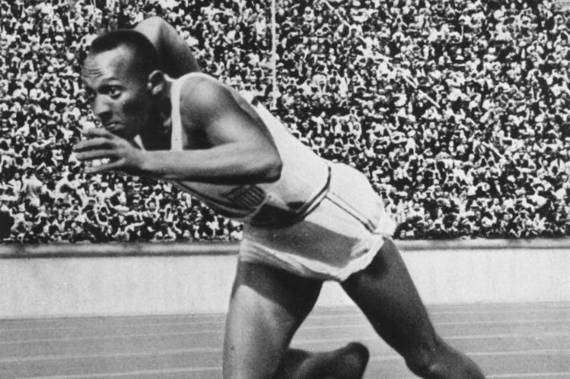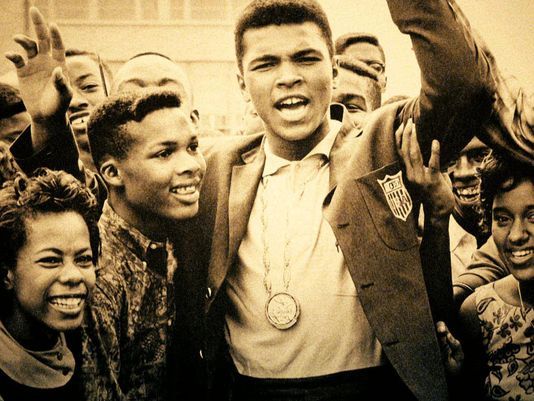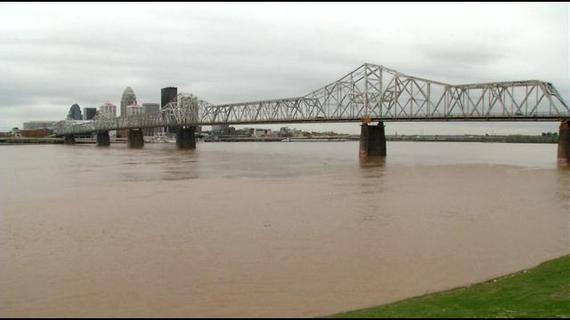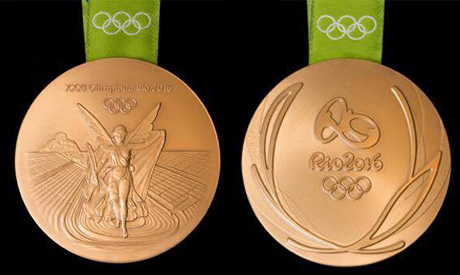The first Olympics did not feature gold medals or any medals for that matter. Only one winner was crowned, and that was with a wreath made of wild olive leaves from a sacred tree near the temple of Zeus at Olympia. Winners at the 1896 Summer Olympics received a silver medal and the second place finishers took home a bronze medal. Solid gold medals were awarded in the 1904, 1908, and 1912 Olympics. Thanks to a shortage of gold during World War I, the practice of awarding solid gold medals ended after the 1912 Olympic Games in Stockholm, Sweden.
The modern Olympic Charter requires that "gold medals" must be comprised of at least 92.5 percent silver, 6.16 percent copper, leaving only 1.34 percent for actual gold. The requirement also stipulates that all medals must be at least 60mm in diameter and 3mm thick. Eight tons of gold, silver, and copper were mined for the 2012 Olympics in London. Each medal involved 22 stages of production and 10 hours to make. A gold medal at the 2012 Olympics had a precious metal value of $708. If the medal were made of solid gold, the value would be over $30 million using the current spot price of gold.
The creed that every Olympic athlete recites is particularly relevant, considering the value of an Olympic gold medal is not worth its weight in gold and the average American Olympian earns $20,000 a year. "The most important thing in the Olympic Games is not to win but to take part. Just as the most important thing in life is not the triumph but the struggle. The essential thing is not to have conquered but to have fought well."
While the value of the precious metals contained within an Olympic medal is perhaps disappointing, Olympic medals have the potential to realize higher prices on the secondary market. A bronze medal from the 1972 Munich Games was sold for close to $3,000 at auction, a gold medal from the 1980 "Miracle on Ice" U.S. hockey team sold for more than $300,000, and a Jesse Owens' gold medal from the 1936 Berlin Olympics sold for $1.4 million in 2013.
There is an Olympic gold medal that may be worth even more than $1.4 million because there is an unprecedented amount of mystery and intrigue surrounding it. No other gold medal holds more history of the United States than the 1960 gold medal won by Cassius Clay (Muhammad Ali). The story, as told in his autobiography, The Greatest: My Own Story, is Ali was refused service at a Louisville restaurant after he returned home from the Olympics in Rome. Upon exiting the restaurant, he was heckled by a group of white kids. The incident angered Ali so much that he threw his gold medal into the Ohio River.
Dick Waibel spent an afternoon with Muhammad Ali and approached the subject with the former heavyweight champ. "He was reluctant to talk about that," Weibel said. "He said he regretted doing that, and he just didn't want to talk about it. I thought I lost him after that." Sportscaster Bob Costas furthered the mystery surrounding Ali's gold medal when he described the legendary story of the gold medal as being an "apocryphal" tale and that the gold medal was most likely just lost. The problem with the claim made by Costas is that the original story was told by Ali himself in his autobiography and was never been publicly denied by the former fighter.
Sports Detectives, which airs on the Smithsonian Channel, has devoted an entire episode to solving the enigma of the 1960 gold medal. It is a captivating and thorough look at perhaps the greatest mystery in sports. The hour-long investigative report speaks with Ali's brother, Rahaman, who claims to have witnessed the act of racism at the Preston Grill & Confectionary and Muhammad Ali tossing the gold medal into the Ohio River. Rahaman's story contradicts what Ali wrote in his autobiography that childhood friend, Ronnie King was the only witness to Ali throwing the gold medal in the river. To further complicate any recovery efforts, the area of the Ohio River that would be the likely landing spot of the gold medal is inundated with metal from previous rebuilding projects of the bridge above the river.
So does the Ali family have the original gold medal, does it still reside at the bottom of the Ohio River, or was it lost many years ago, and the story of throwing the medal in the river was simply fiction used to further the legend of Muhammad Ali? Most likely Ali's version that he threw the medal in the Ohio River is true. We may never know for sure, but it is fair to say that the gold medal would be worth more than the record $1.4 million for the 1936 gold medal of Jesse Owens. Ali's gold medal, if found would likely be the most valuable piece of sports memorabilia ever.
A 1960 Olympic gold medal fetched a little over $11,000 at auction in 2011 which is a substantial premium over the raw value of the precious metals of the medal itself. Winners at the Olympics in Rio are not likely to become wealthy overnight from the actual value of the medal either. The approximate worth of the precious metals that constitute the gold medals that will be awarded in Rio is only $508.42. Olympians might have to rely on the fame that sometimes follows winning Olympic gold. If not, hopefully, the wealth of the Olympic experience is enough because the medal itself isn't worth the price of gold.
